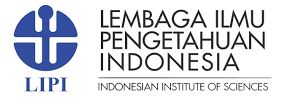Perlindungan Konstitusional terhadap Hak Atas Pendidikan Masyarakat Penghayat Kepercayaan di Jepara
Abstract
Indonesia as a multicultural country has a variety of racial, ethnic, cultural, and other diversity. Indigenous faiths is one of the diversity of religions or beliefs that need to be recognized. After the Constitutional Court Decision Number 97/PUU-XIV/2016, believers feel that their rights have been recognized by the state. However, in terms of education there is still discrimination such as the portion of learning for their beliefs as indigenous faiths. This research focuses on two things, namely the implementation of Law Number 20 of 2003 concerning the National Education System and school policies related to discrimination against Sapta Darma, Subud, and Kapribaden believers in Jepara Regency. The method used in this research is socio-legal by analyzing and examining the effectiveness of laws and regulations in community interaction. An understanding of several studies and theories provides two discussion results. First, the Office of Education of Jepara Regency still pays less attention to the rights of indigenous faith students in terms of the learning portion. Second, school policies are not sufficient in suppressing the potential for discrimination against students of indigenous faiths. Based on the results of the discussion, it can be concluded that with the existence of state protection for indigenous faiths, the government is obliged to protect their constitutional rights. The need for policies from the Office of Education of Jepara Regency in the field of education to fulfill constitutional rights that are able to suppress the potential for discrimination for students of indigenous faiths.
___
Referensi
Buku dengan penulis:
Purwanda, S. (2018). Pendidikan Pancasila (Cetakan Kedua). Parepare: Sampan Institute.
Artikel jurnal:
Alfansyur, A., & Mariyani, M. (2020). Seni Mengelola Data: Penerapan Triangulasi Teknik, Sumber dan Waktu pada Penelitian Pendidikan Sosial. Historis: Jurnal Kajian, Penelitian dan Pengembangan Pendidikan Sejarah, 5(2), 146-150.
Cerdas, F. A., & Afandi, H. (2019). Jaminan Perlindungan Hak Pilih dan Kewajiban Negara Melindungi Hak Pilih Warga Negara dalam Konstitusi (Kajian Kritis Pemilu Serentak 2019). Sasi, 25(1), 72-83.
Dewantara, A. W. (2019). Bhinneka Tunggal Ika Sebagai Model Multikulturalisme Khas Indonesia. Seminar Nasional Keindonesiaan (FPIPSKR), IV, 396-404.
Gunawan, S., Wardhani, L. C., & Surya, F. A. (2023). Implementasi Putusan Mahkamah Konstitusi No. 97/PUU-XIV/2016 terhadap Hak Konstitusional Penghayat Kepercayaan di Kecamatan Mayong Kabupaten Jepara. Jurnal Suara Keadilan, 24(2), 93-103.
Harsyahwardhana, S. (2020). Akibat Hukum Putusan MK No. 97/PUU-XIV/2016 tentang Judicial Review UU Administrasi Kependudukan Terhadap Penghayat Aliran Kepercayaan. Arena Hukum, 13(2), 369-387.
Jufri, M. (2017). Nuansa Maqhasid Al-Syariah Dalam Undang-Undang Nomor 39 Tahun 1999 tentang Hak Asasi Manusia. Istinbath: Jurnal Hukum, 14(1), 1-14.
Karmila, K., Fauziah, N., Safira, E., Sadikin, M. N. A., & Wardhana, K. E. (2021). Diskriminasi Pendidikan di Indonesia. EDUCASIA: Jurnal Pendidikan, Pengajaran, dan Pembelajaran, 6(3), 191-203.
Munif, A. (2018). Potret Masyarakat Multikultural di Indonesia. Journal Multicultural of Islamic Education, 2(1), 1-10.
Mustapa, D. I., Purwanda, S., & Ambarwati, A. (2023). Pemenuhan Hak Khusus bagi Narapidana Perempuan Hamil yang Menjalani Masa Tunggu Hukuman Mati Ditinjau dari Undang-Undang Nomor 1 Tahun 2023. Dinamika Hukum, 24(2), 258-265.
Purwanda, S., & Syahril, M. A. F. (2021). Bentuk Tanggung Jawab Negara melalui Pemerataan Buku Bacaan ke Pulau-Pulau Kecil Terluar. JUSTISI, 7(2), 155-166.
Purwanda, S., & Wulandari, A. S. R. (2023). Socio-Legal Studies: Methodical Implications of Legal Development in Indonesia. Al-'Adl, 16(2), 152-163.
Puspitasari, R., Dewi, D. A., & Furnamasari, Y. F. (2021). Hak Asasi Manusia untuk Kebebasan Beragama. Jurnal Pendidikan Tambusai, 5(3), 7304-7309.
Rohmah, S., Tohari, I., & Kholish, M. A. (2020). Menakar Urgensi dan Masa Depan Legislasi Fiqih Produk Halal di Indonesia: Antara Otoritarianisme Mayoritas dan Jaminan Konstitusional Mayoritas Muslim. Al-Manahij: Jurnal Kajian Hukum Islam, 14(2), 177-190.
Rosyid, M., & Kushidayati, L. (2020). Pelayanan Pendidikan Penghayat Sapta Darma di Sekolah Formal: Studi Kasus di Kudus. Jurnal Hukum Progresif, 8(1), 81-97.
Siregar, G. T., Silaban, R., & Gustiranda, P. (2020). Kebangkitan Hak-Hak Sipil Penghayat Kepercayaan Parmalim Pasca Pasal 61 Ayat (1) Putusan Mahkamah Konstitusi Nomor 97/PUU-XIV/2016 di Kota Medan. Jurnal Rectum: Tinjauan Yuridis Penanganan Tindak Pidana, 2(2), 75-84.
Sulaiman, S. (2018). Problem Pelayanan terhadap Kelompok Penghayat Kepercayaan di Pati, Jawa Tengah. Jurnal SMART (Studi Masyarakat, Religi, dan Tradisi), 4(2), 207-220.
Viri, K., & Febriany, Z. (2020). Dinamika Pengakuan Penghayat Kepercayaan di Indonesia. Indonesian Journal of Religion and Society, 2(2), 97-112.
Zakiyah, Z. (2018). Pendidikan Kepercayaan terhadap Tuhan Yang Maha Esa: Pemenuhan Hak Siswa Penghayat di Sekolah. Penamas, 31(2), 397-418.
World Wide Web:
Romanti. (2023). Penghayat Kepercayaan di Indonesia: Pemeliharaan Warisan Budaya dan Harmoni Kehidupan Beragama. Diakses dari laman: https://itjen.kemdikbud.go.id/web/penghayat-kepercayaan-di-indonesia-pemeliharaan-warisan-budaya-dan-harmoni-kehidupan-beragama/






1.png)






.png)

















